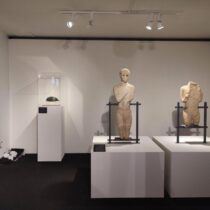George W. Stocking Jr., a historian of science who chronicled the norms, customs and tribal beliefs of modern anthropologists, documenting a history of racial bias and ethnocentrism as well as great insights, died on July 13 in Chicago. He was 84.
Professor Stocking, was born on Dec. 8, 1928, in Berlin to George and Dorothe Reichard Stocking. He attended Harvard, where he became active in radical political movements and joined the Communist Party. After graduating in 1949, he was a labor organizer and factory worker. He left the party in 1956 and received his Ph.D. from the University of Pennsylvania with a degree in American studies.
Still, he left his mark on the history of anthropology during his years at the University of Chicago, where he taught history and anthropology. What made Stocking special were his studies of anthropology’s pioneers, most notably Edward Burnett Tylor, the self-taught 19th-century British theorist who is often called the father of the field, and Franz Boas, the German-American émigré who pioneered its practice in the United States.
Professor Stocking’s first book, a 1968 collection of essays, “Race, Culture and Evolution” -now a landmark on the history of anthropology as a discipline- profiled anthropoligists such as Tylor, Boas and others, who had professionalized a field that had long been dominated by gentleman amateurs and missionaries. The book traced the ideological fault lines among 19th-century practitioners of anthropology and asserted that Tylor’s standing did not bear a close reading of his work.
Tylor is considered to have been the first to define the word “culture” in the modern sense: as a set of knowledge, customs and values that all people acquire from their native environments, whether England or Polynesia. Tylor “acknowledged the existence of many human cultures, and refuted early anthropologists who called dark-skinned people savages of another species”. However, “he acknowledged only one cultural ideal, believing that “less civilized” people should accept guidance from more civilized ones”, Professor Stocking wrote. In Tylor’s words, ““The civilized man is not only wiser and more capable than the savage, but also better and happier.”(Primitive Culture, 1871).
For Professor Stocking, a genuinely science-based approach to the study of human culture was embodied by Boas, a trained physicist who studied American Indian tribes in the Pacific Northwest and later debunked theories linking race with culture and intelligence. He challenged race’s standing as a legitimate scientific concept, calling it “less a biological fact than a social myth.”
Professor Stocking’s essays on Boas, and a book he edited, “The Shaping of American Anthropology, 1883-1911: A Franz Boas Reader” (1974), were instrumental in reviving interest in Boas among a generation that had not been born when Boas died in 1942.
“Boas had an agenda: to rid anthropology of racism,” said Paul A. Erickson, a professor of anthropology at St. Mary’s University in Halifax, Nova Scotia, and an author, with Liam D. Murphy, of “A History of Anthropological Theory,” a standard text. Professor Stocking’s work, he said, had revived interest in that agenda as well.
Still, he did not neglect analysing his own perspective through… interpreting his own life! In a semi-autobiography, “Glimpses Into My Own Black Box,” published in 2010, Professor Stocking turned on himself the same unblinking gaze he had trained on the history of anthropology. The book, an account of his youth and family ancestry, amounts to an ethno-historical description of upper-middle-class life at the end of the 19th century and the first half of the 20th.
In his own way, Stocking will be remembered as paving the road for making anthropology more “human”.





